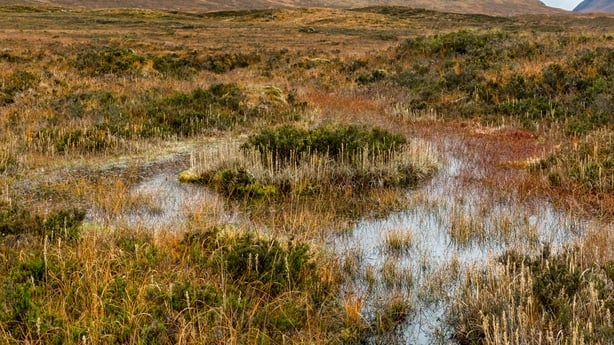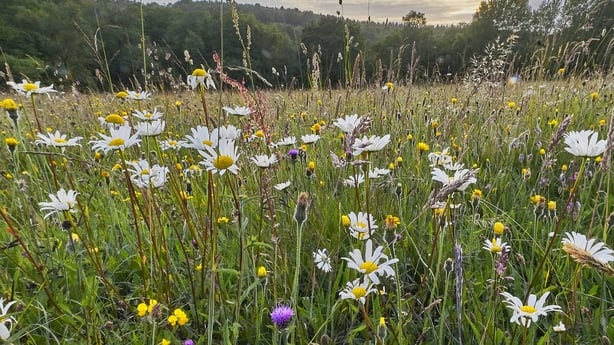Funding and action on biodiversity conservation and restoration is "totally inadequate" in Ireland, according to the latest report from the Climate Change Advisory Council.
The council is calling for a greater focus on biodiversity by the State to fight climate chaos.
In its annual review, the council welcomes some progress on biodiversity in terms of increased legal obligations and targets, but said additional financial support for biodiversity with accelerated action and implementations is "urgently needed".
Enhancing biodiversity can limit some impacts of climate change and ecological breakdown poses risks to Ireland’s food security, economic development as well as health risks to its population.
CCAC member Professor Yvonne Buckley said biodiversity management is key to mitigating the effects of climate change.
"If we don't tackle biodiversity and climate change together then it can lead to problems," she said.
Healthy ecosystems can not only draw down and store greenhouse gas emissions from the atmosphere, but they also have the potential to create other benefits.

Prof Buckley gave the example of a rewetted bog area that can benefit endangered species such as the hen harrier but can also absorb more water from heavy rainfall and thereby limit or even prevent a flooding event.
"We need to optimise the role of ecosystem restoration in reducing emissions, sequestering carbon and improving resilience to climate change," Prof Buckley said.
"Peatland restoration is an obvious example, but many other ecosystems need to be protected and restored, particularly in coastal and upland areas.
"It is crucially important that we understand and adapt to the impacts of climate change on ecosystems and the Government, in collaboration with the broader research community, should develop a dedicated research programme to deliver this."
Prof Buckley said it is vital that every government department thinks of biodiversity in its planning.
We need your consent to load this rte-player contentWe use rte-player to manage extra content that can set cookies on your device and collect data about your activity. Please review their details and accept them to load the content.Manage Preferences
She added that while it is known that Ireland’s biodiversity is not healthy, it is not known how bad the situation currently.
Biodiversity data in Ireland is poor, Prof Buckley said, adding there are no habitat maps for the country, meaning that they are working with incomplete information in terms of where plant and animal species are in Ireland and how many there are.
"There is no comprehensive picture of biodiversity in Ireland," Prof Buckley said.
"If you don't know what you've got, it's hard to protect it.
"We do know that over half of the habitats here are in decline."

According to research from Teagasc, around 2% of Ireland is under native woodland, and only a small fraction of that would be ancient woodland.
One of the council's recommendations is for the Government to develop a dedicated research programme aimed at understanding and adapting to the impacts of climate change on nature.
Among other recommendations to improve biodiversity are setting ambitious targets and costed measures under the National Nature Restoration Plan; an urgent increase in funding for the 4th National Biodiversity Action Plan and the development of a credible plan to protect at least of 30% of land and sea by 2030.
The council also said the Government must support farmers with results-based financial support to enable them to adopt nature-friendly practices and enhance biodiversity on their land.








